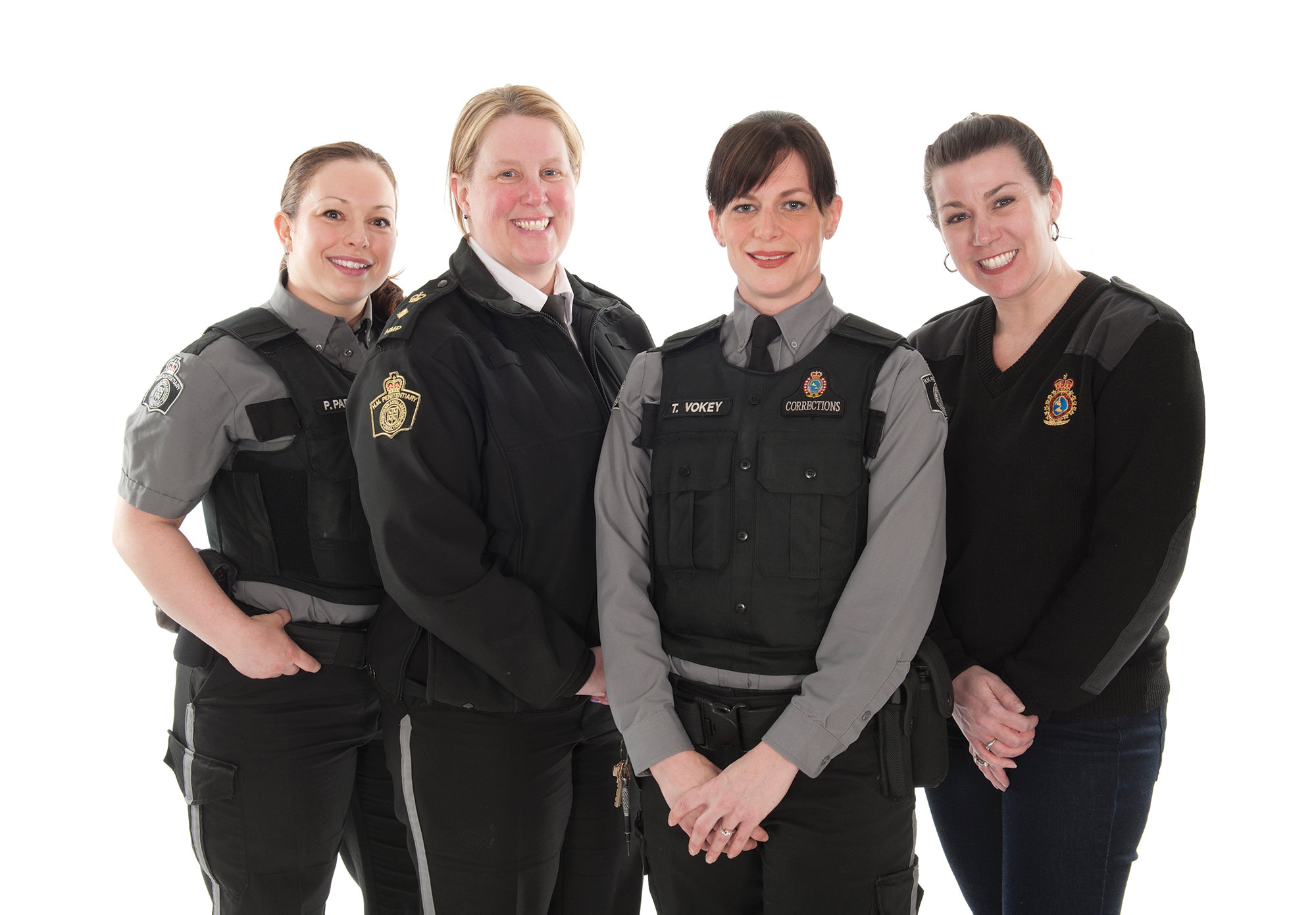The Herald talks with five female corrections personnel across Newfoundland and Labrador in a revealing look at the unsung heroes of law enforcement
====
 Everyone thinks their job is the toughest, most demanding, tedious and labour intensive on earth. That’s part of our makeup. It doesn’t matter if you’re a janitor, poet, welder or mathematician. Emotionally, physically, mentally, we all have days that make us throw our hands in the air and tug on what remaining strands of hair we might have.
Everyone thinks their job is the toughest, most demanding, tedious and labour intensive on earth. That’s part of our makeup. It doesn’t matter if you’re a janitor, poet, welder or mathematician. Emotionally, physically, mentally, we all have days that make us throw our hands in the air and tug on what remaining strands of hair we might have.
For the men and women that make up the corrections workers in Newfoundland and Labrador, sacrifice and putting self on the back-burner for the sake of others are just part of the job description.
Corrections Week
May 6-12 in Newfoundland and Labrador marked Corrections Officers Week. In tribute to that fact, and with Mother’s Day right around the corner, The Herald sat down with some of the dedicated female corrections personnel across the island to discuss the passion behind the profession, the sacrifice required and much more.
“Corrections Week is important to recognize the impact that these men and women are having on the inmates lives. Unlike other first responders, the staff at HMP and the other institutions right across the island, they live amongst the inmates,” shared Assistant Superintendent Diana Gibbons. “There’s a lot of staff down there who have such a positive impact on these inmates.”
“A lot of people overlook us, because we’re not out in the public eye all the time,” adds Correctional Officer Tracy Vokey. “We’re not out on patrol like the RNC officers or the RCMP. We’re still sworn peace officers, and we still have a lot of the same standards. We get overlooked because we’re behind walls.”
‘Unsung Heroes’
For Correctional Officer Charlene Michelin of the Corner Brook Detention Centre, a single mother of three boys, a near decade long career in corrections has afforded her an opportunity to truly soak in the benefits of the profession. Yet corrections personnel are still marginalized and under-credited in the community as a whole, something Michelin and our fellow interviewees hope to remedy. 
“I think it’s important for corrections personnel to be more involved with the community. Not just during Corrections Week,” Michelin shared. “Unfortunately correctional officers walk the toughest beat in law enforcement, but are not recognized in the public eye. When you ask a child what they want to be when they grow up it is doubtful they will say they want to work in corrections. Members in our communities don’t see correctional officers in action, therefore we are the unsung heroes of law enforcement.”
While many of us 9-5ers are afforded some flexibility when it comes to schedules, corrections personnel oftentimes are faced with the reality of sacrificing much more than time.
“You put your own goals aside when you start your family, and you put you children first,” says Correctional Officer Peggy Starkes. “Your schedule revolves around what they need.”
“Once I started to have a larger family I opted to come out of uniform, to work the Monday to Friday and to be the constant,” adds Stephanie Hynes, who now works in Sentence Administration. “It was a sacrifice I had to make that (she and her husband) couldn’t both do shift work. I had to come out of uniform. Now that my girls are older and no longer need daycare, now I hate that constant. That’s one thing that I miss.”
Though make no mistake, there is a great deal of pride that goes along with such an intense and demanding career path. Rehabilitation and interpersonal growth are just some of the pros to the profession, though often the best results are the ones left unseen.
‘I Never Gave Up’
 “The only thing about this line of work is you don’t know if that person is doing well unless they don’t come back,” says Vokey. “Sometimes it’s challenging and you might think; why am I doing this? When you get those comments and those inmates who look at you genuinely and say thank you for that conversation, or making sure I can do this, that makes it worth it.”
“The only thing about this line of work is you don’t know if that person is doing well unless they don’t come back,” says Vokey. “Sometimes it’s challenging and you might think; why am I doing this? When you get those comments and those inmates who look at you genuinely and say thank you for that conversation, or making sure I can do this, that makes it worth it.”
“The most rewarding part of working within corrections is that it has given me a stable career to provide for my three boys,” says Michelin. “As a single mother I got to raise them with strong morals of working hard towards a better life. No matter how tough it had been to leave them for training and then working shift work, I never gave up. With determination to better myself for my kids, I found a career that showed me how to appreciate life and to be thankful for what I have accomplished.”
That appreciation for life extends beyond the constructs of family. There are bonds forged between staff and inmates, far removed from the black-and-white stereotypes we are used to seeing on film and television.
“We’re not just a uniform, we’re not just turning keys,” says Vokey. “You build a relationship with these people.”
“We’re all so different and we all have our own individual uniqueness to give,” adds Starkes. “For them, it kind of opens up a different door.”
Adds Gibbons, “Empathy goes a long way in our job.”
